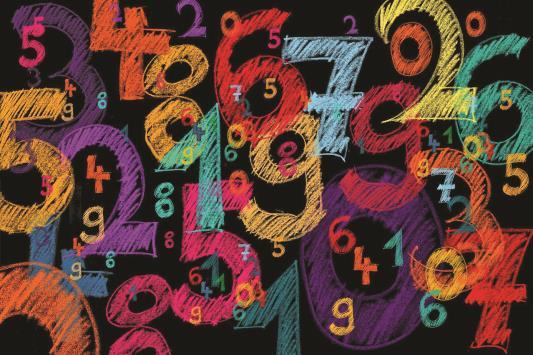
4 minute read
YOU CALL IT LUCK
I Call It Standard Deviation
If a person goes to the casino and plays a negative expectation game for a few hours and walks out a winner, they usually will tell you they had a lucky day. However, I would describe what they experienced as "Standard Deviation" in that they did not achieve the expected mathematical outcome which is a loss. Let me explain.
If I randomly flip a coin there are only two possible outcomes, heads or tails. On any given flip, there is a 50% chance that heads will be the result and a 50% chance that tails will be the result. So if I flip a coin 100 times, the expectation is to get 50 heads and 50 tails. Reality may be different. The measure of that reality is called "Standard Deviation."
Standard Deviation is a term used in mathematical probabilities to predict the outcome of an event. In our coin flipping trial of 100 flips you would expect to get 50 heads and 50 tails, but twothirds of the time you will get between 45 heads and 55 tails or just the reverse, or something in between, and that would not be unusual. This would occur 68.3% of the time. That measurement is one standard deviation from the expected outcome of 50 tails and 50 heads. Simply put, if you did a thousand trials of flipping a coin 100 times and recorded the results, most of your results would fall between 45 and 55 either way. What would be unusual is to get a lot of trials where the result was actually 50 heads and 50 tails.
Any game in the casino can be mathematically broken down and a house edge can be calculated. For example, if a Blackjack player uses perfect basic strategy at a six deck game, the house has around a .55% advantage depending on the rules. So the casino's expectation is to make 55 cents for every $100 wagered. If the casino's expectation was always equal to the actual outcome the player would never win, but thanks to our good friend Standard Deviation the player does win, sometimes. In fact, if you do play perfect basic strategy, you have a 25% chance of being ahead after playing 25,000 hands.
To overcome the house edge on a six deck game you would have to count cards and use a 1 to 12 betting spread, so at a $5 table your bets would be between $5 and $60. If you played this way (and played several hundred 3 hour sessions) your average win would be $22.50. However, like getting 50 tails and 50 heads in our coin example, it would be rare to get an exact win of $22.50 after three hours of play. Two-thirds of the time you would wind up somewhere between a win of $191 and a loss of $147.
In the name of good journalism, I decided to conduct my own trial and report the results here. Over the past few weeks I played sixteen, 3 hour blackjack sessions at the local casinos using a 1 to 12 betting spread against a six deck game. Sixteen sessions is considered a very short trial, so I do intend to keep playing to see if the expected outcome will be close to the actual outcome.
Apparently Standard Deviation has been riding shotgun with me because my results are higher than expected! If you had a winning day at the casino make sure you thank our friend, Standard Deviation. $
Writer TJ Jorgensen has been a professional Blackjack player for over 25 years. He is well known for his tournament play and has beaten some of the top tournament players in the world. He has also won the World Series Of Blackjack. His newest book “How To Become A Blackjack Jedi” is available online at Amazon.com.










